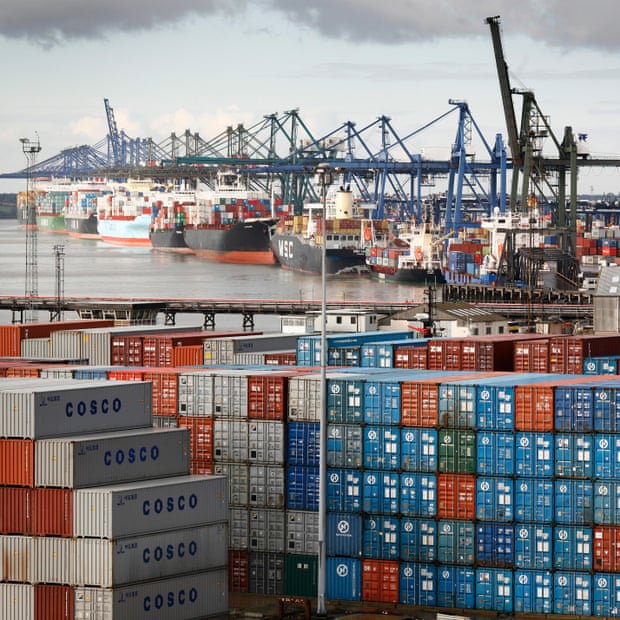When Boris Johnson became prime minister he said the “doubters, doomsters, gloomsters” had got Britain wrong.
After that first speech on the steps of Downing Street, the prime minister faces an early test, with official figures suggesting the economy is on the cusp of recession.
GDP contracted in the three months to June by 0.2%, the first decline in a quarter since 2012 when the nation risked a double-dip recession amid the weak recovery from the financial crisis.
Q&AWhat is gross domestic product (GDP)?
Show

Gross domestic product (GDP) measures the total value of activity in the economy over a given period of time.
Put simply, if GDP is up on the previous three months, the economy is growing; if it is down, it is contracting. Two or more consecutive quarters of contraction are considered to be a recession.
GDP is the sum of all goods and services produced in the economy, including the service sector, manufacturing, construction, energy, agriculture and government. Several key activities are not counted, such as unpaid work in the home.
The ONS uses three measures that should, in theory, add up to the same number.
• The value of all goods and services produced – known as the output or production measure.
• The value of the income generated from company profits and wages – known as the income measure.
• The value of goods and services purchased by households, government, business (in terms of investment in machinery and buildings) and from overseas – known as the expenditure measure.
Economists are concerned with the real rate of change of GDP, which accounts for how the economy is performing after inflation.
Britain's government statistics body, the Office for National Statistics, produces GDP figures on a monthly basis about six weeks after the end of the month. It compares the change in GDP month on month, as well as over a three-month period.
The ONS warns that changes on the month can prove volatile, preferring to assess economic performance over a three-month period as the wider period can smooth over irregularities.
The most closely watched GDP figures are for the four quarters of the year; for the three months to March, June, September and December.
The figures are usually revised in subsequent months as more data from businesses and the government becomes available.
The ONS also calculates the size of the UK economy relative to the number of people living here. GDP per capita shows whether we are actually getting richer or poorer, by stripping out the impact of population changes.
Richard Partington
Should the economy fail to do anything more than stagnate in the third quarter, a technical recession would be confirmed. Economists reckon there is a one in three chances of such an outcome, even if the UK avoids leaving the EU without a deal.
The National Institute of Economic and Social Research said it expects growth will likely return in the third quarter. But a lack of positive momentum and recent business surveys suggest output could falter again.
Sajid Javid blamed the drop in GDP on challenging conditions in the world economy, and talked up Britain’s resilience. He also argued that Britain would outpace EU rivals such as Germany and Italy this year.
Bad news for our biggest trading partners tends to be bad news in Britain, given the high degree of integration in EU supply chains. Donald Trump’s trade war with China has served as a handbrake on global growth, sapping business confidence and sinking factory output around the world.
However, the unique Brexit headwinds also played a role.
Planned factory shutdowns by carmakers around the original 29 March Brexit deadline were behind much of the slump in the second quarter, contributing to the largest quarterly fall in manufacturing for a decade.
The sugar rush for the economy from companies stockpiling goods has also faded. Growth had raced ahead to 0.5% in the first quarter as firms bought supplies at the fastest rate on record for a G7 economy. But with reasonably adequate supplies the new orders have dried up, hitting economic output.
Finally, the general cloud of Brexit uncertainty has acted as a handbrake on business activity in recent months. Business investment fell by 0.5%, as corporate caution due to the recent political turmoil weighed on spending decisions.
The service sector was the only silver lining. Consumers have propped up growth in recent months by tuning out from the Brexit warnings and carrying on shopping. An acceleration in wage growth, stable inflation and record employment has helped.
Javid said he was not expecting a recession “at all” for Britain, but the chances have certainly risen sharply.
